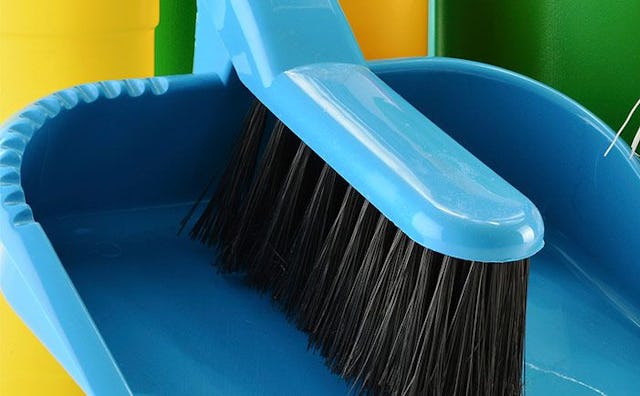There Are Schools Without Janitors Where Kids Do the Cleaning

And yes, if this idea sounds slightly familiar, you might remember Newt Gingrich suggesting it during his 2011 campaign to run for President. This was his theory:
“You say to somebody, you shouldn’t go to work before you’re what, 14, 16 years of age, fine,” Mr. Gingrich said. “You’re totally poor. You’re in a school that is failing with a teacher that is failing. I’ve tried for years to have a very simple model. Most of these schools ought to get rid of the unionized janitors, have one master janitor and pay local students to take care of the school. The kids would actually do work, they would have cash, they would have pride in the schools, they’d begin the process of rising.”
The Armadillo Technical Institute, a charter school in Phoenix, Oregon, is trying something similar, not as a way to cut costs, but with the goal of instilling a sense of ownership and responsibility. Instead of having janitors, they put the kids on a rotation schedule—because let’s face it, not all janitorial chores are created equal—and have them spend a half hour every day after lunch sweeping, mopping, taking out the trash, and cleaning the bathrooms. For the record, no one gets put on toilet-scrubbing duty more than two or three times a year.
The school still has some maintenance staff for tasks that are too difficult, or dangerous, but the kids take care of the day-to-day clean-up and even get on each other’s cases for leaving a mess behind, since they now understand that somebody—not the mythical clean-up elves that apparently inhabit my house—has to throw it away.
Brentwood Academy near Nashville is doing something similar, incorporating clean-up into the kids’ daily routine. It’s a private school versus a public one, so maybe that’s why the kids only have to clean up for ten minutes, but the idea behind it is to train them for a real life of living in a space they’re responsible for, including their future dorm room. Even the sports teams are expected to pick up trash left in the stands.
Are parents protesting the time taken away from academics for these activities? Nope. The benefits seem pretty obvious. Studies tell us that kids who participate in household chores are happier, more successful adults, so spreading that to school doesn’t really seem like much of a stretch.
Kids cleaning up after themselves? What a novel idea.
This article was originally published on